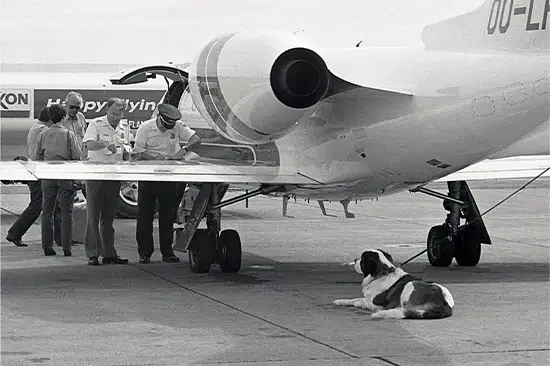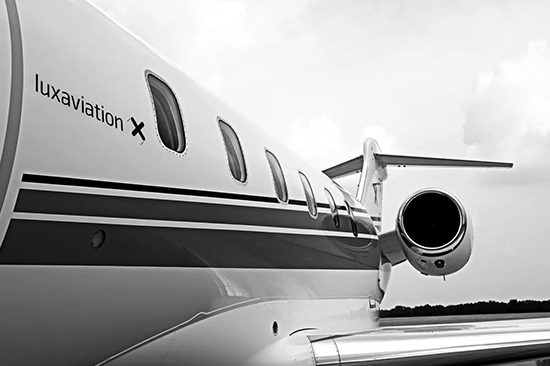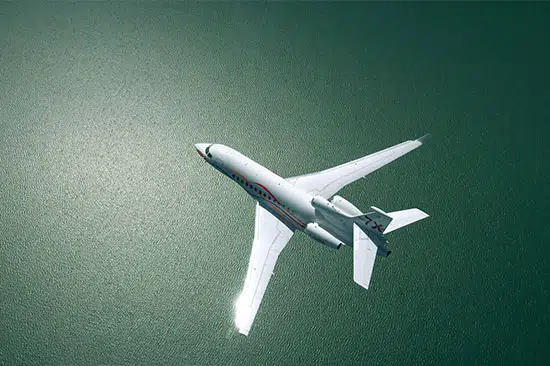Can Private Jet Charter Be Environmentally Friendly? Exploring Eco-Friendly Private Jet Charter
21 April 2023
When it comes to luxury travel, private jets have always been the epitome of style, comfort, and exclusivity. However, with concerns focussing on the perceived environmental and social impacts of air travel on the rise, many are wondering: can private jets be eco-friendly?

As reported by the General Aviation Manufacturers Association (GAMA), 2% of global human-induced CO2 emissions are attributed to air travel. As for business aviation, this segment of the wider sector accounts for just 0.04% of global emissions. But while these contributions are relatively low, there are wider non-CO2 implications relating to flying, many of which are not included in the Paris Agreement.
This has prompted Luxaviation to introduce some of the most environmentally friendly and fuel-efficient aircraft to the charter market. Our fleet features the Bombardier Global 7500, which stands out as the first business jet to receive an Environmental Product Declaration (EPD). This aircraft incorporates high-speed transonic wings that minimize drag, leading to lower fuel consumption and emissions.
In this blog post, we will explore how the aviation sector is transforming its conventional ways of operating by adapting to today’s rapidly changing landscapes, highlighting the innovations and advancements that are paving the way for a greener future in private jet travel.
The Push for Environment-Friendly Private Jets
Although private jets are often criticized for their carbon footprint, the industry has been proactive in seeking ways to reduce carbon emissions and become more sustainable. Aircraft manufacturers have been focusing on developing more fuel-efficient and environmentally friendly designs, while sustainable aviation fuel (SAF) is playing a crucial role in moving towards net-zero flying.
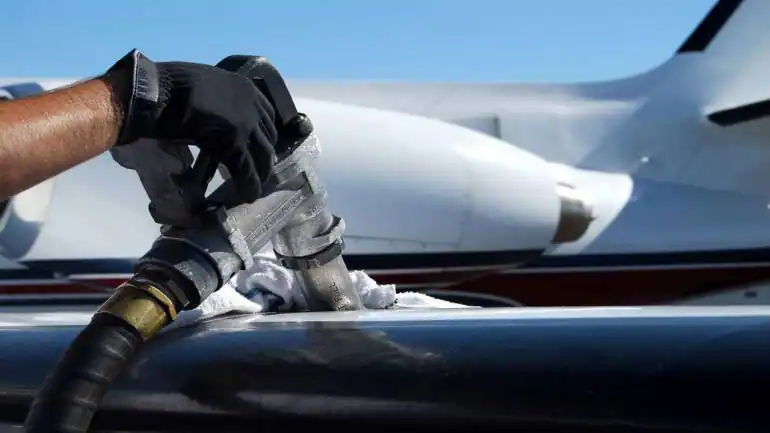
Fuel-efficient Engines: The First Step Toward Greener Skies
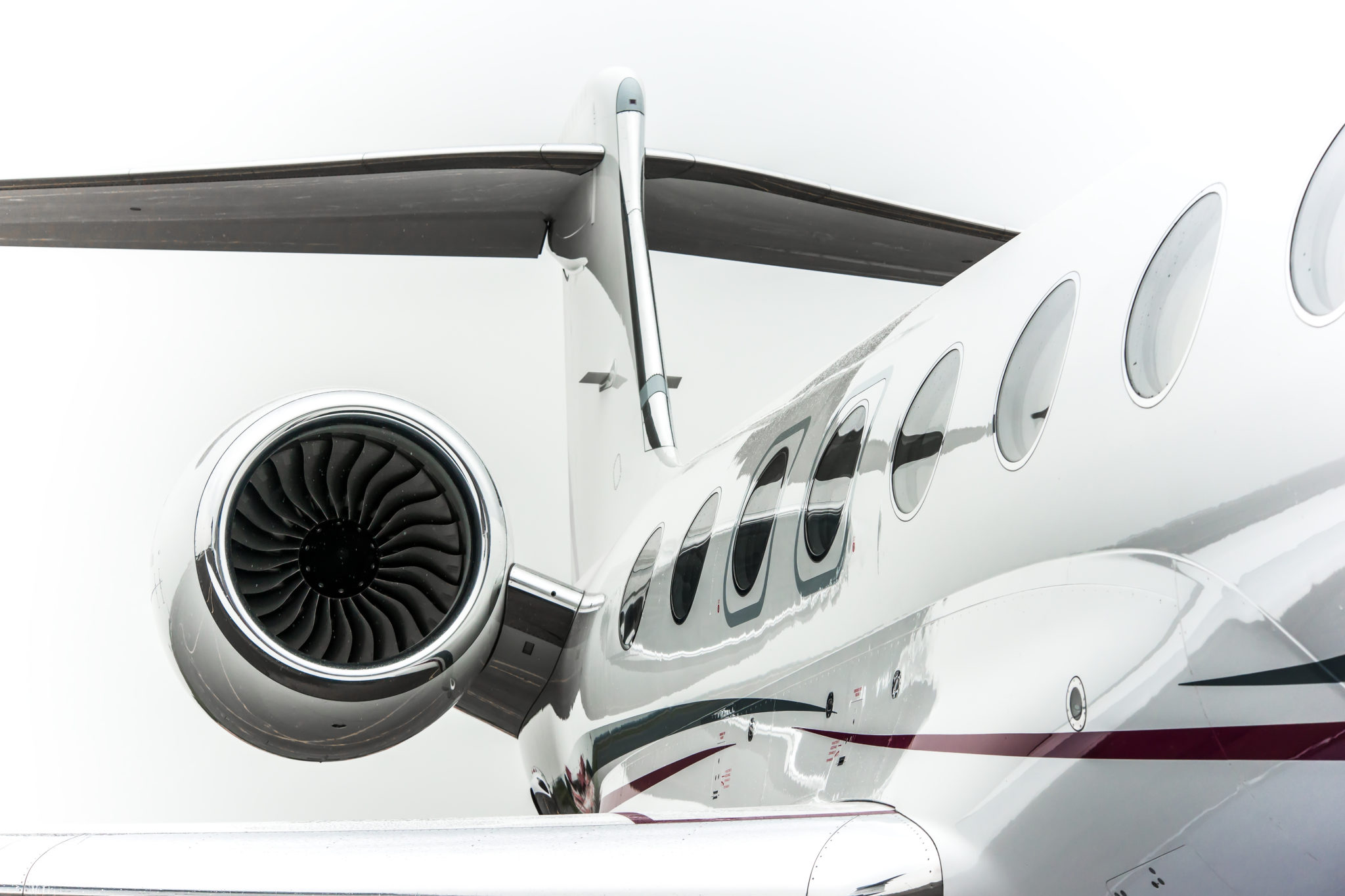
One of the most significant contributors to a private jet's carbon footprint is fuel consumption. Modern aircraft manufacturers are continuously investing in research and development to create more fuel-efficient engines reducing fuel consumption.
Pratt & Whitney proudly claims a reduction of 10 million tons in carbon emissions. Companies like Pratt & Whitney, Rolls-Royce, and General Electric are working on engines that can reduce fuel burn by maximum.
These advancements not only reduce emissions but also help lower operational costs for private jet operators.
Most Environmentally Friendly Private Jet - Sustainable Green Private Jet Charter
Bombardier Global 7500, Gulfstream G700, Embraer Praetor 500/600, Cessna Citation Longitude, and Pilatus PC-24 are currently the most eco-friendly private jet in the private aviation industry,
Dassault, a French aerospace company is also leading the way in sustainable aircraft design, with other companies like Embraer following suit. Dassault is aiming for a 50% decrease in Carbon Dioxide emissions, an 80% reduction in nitrogen oxides, and a 50% reduction in ground noise levels.
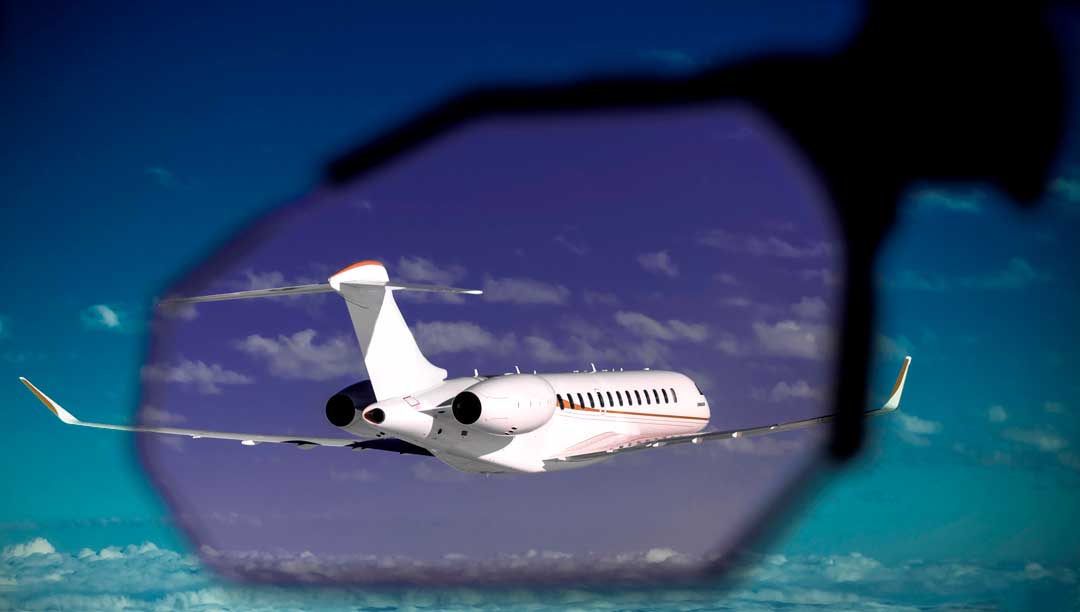
Lighter Materials: Making Aircraft More Environmentally Friendly
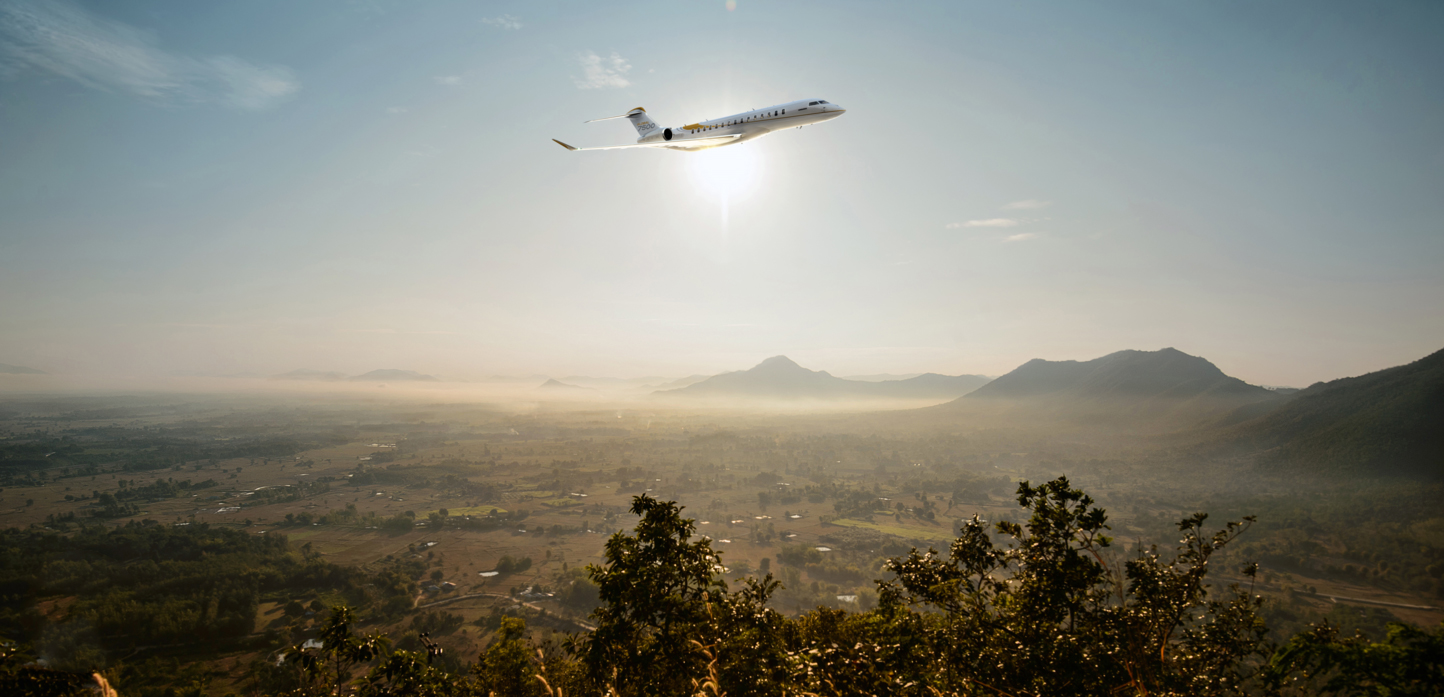
Another aspect of making private aircraft more eco-friendly is the use of lightweight materials in their construction. The lighter an aircraft is, the less fuel it consumes. Business jet manufacturers Manufacturers like Bombardier, Gulfstream, and Embraer are utilizing advanced composite materials and carbon fibre to construct their latest aircraft models.
These materials are not only lighter than traditional metals but also offer increased durability and corrosion resistance.
Carbon Offsetting Programs: Balancing Luxury Travel with Environmental Responsibility
While the industry works towards developing more eco-friendly technologies, private jet charter companies such as Luxaviation are also offering carbon offsetting programs for clients who want to mitigate their environmental impact.
These programs allow passengers to offset carbon emissions produced from flights that otherwise can’t be avoided through investing in high-quality nature-based projects that are providing renewable energy, conservation, and reforestation initiatives.

Biofuels - Sustainable Aviation Fuel: A Renewable Alternative to Fossil Fuels

Bombardier Global 7500, Gulfstream G700, Embraer Praetor 500/600, Cessna Citation Longitude, and Pilatus PC-24 are currently the most eco-friendly private jet in the private aviation industry,
Dassault, a French aerospace company is also leading the way in sustainable aircraft design, with other companies like Embraer following suit. Dassault is aiming for a 50% decrease in Carbon Dioxide emissions, an 80% reduction in nitrogen oxides, and a 50% reduction in ground noise levels.
Electric and Hybrid Aircraft: The Future of Net Zero Carbon Emissions
Electric and hybrid aircraft technology is quickly gaining traction in the private jet industry. Companies like Eviation and Ampaire are developing electric and hybrid aircraft prototypes that promise zero-emission flights and reduced operating costs.
One exciting example is the Eviation Alice, an all-electric private jet capable of carrying up to nine passengers with a range of 440 nautical miles. This revolutionary aircraft has already caught the eye of major players like Cape Air, which placed a significant order of 75 Eviation Alice all-electric aircraft.
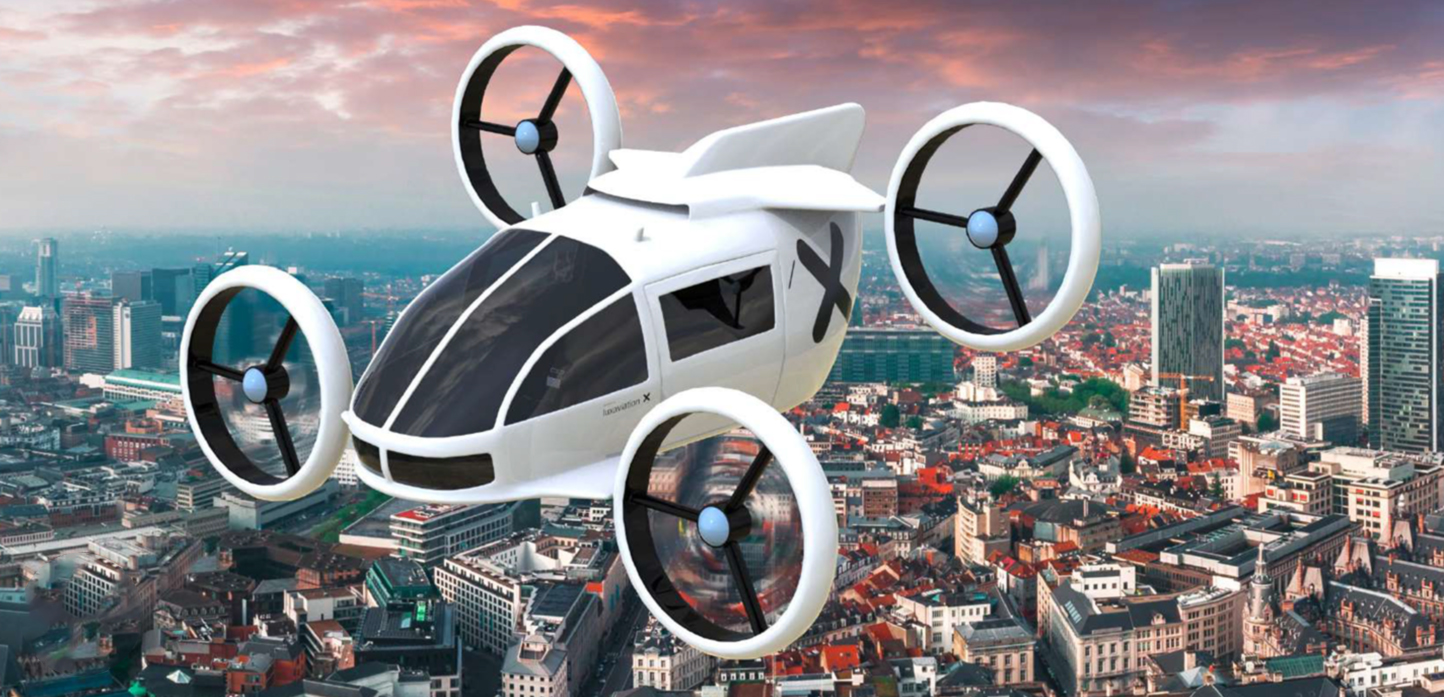
Meanwhile, Luxaviation and Lilium are partnering to bring advanced air mobility to passengers in Europe through the development of Lilium Jet, a seven-seat electric vertical-takeoff-and-landing air taxi. With a focus on net zero carbon emissions, this partnership promises to make a significant impact on the aviation industry's environmental footprint.
The Future of Eco-Friendly Private Jets

The National Business Aviation Association has been dedicated to achieving carbon-neutral growth for years, and significant progress has been made. Various offsetting programs are in place to encourage private jet owners to make eco-friendly choices when travelling.
Innovations Driving the Future of Private Aviation

The future of private aviation is expected to see even greater advancements in eco-friendly technologies and efficient eco-design concepts. Some of the concepts driving this evolution include:
- Hydrogen-powered engines
- Wing designs that reduce drag
- Electric-powered short-haul aircraft
- Cabins that accommodate more passengers
- Developing private supersonic aircraft
Investing in Sustainable Infrastructure
To support the increasing demand for eco-friendly private jet travel, airports, and Fixed Base Operators (FBOs) worldwide are investing in sustainable infrastructure.
This includes installing solar panels, implementing energy-efficient lighting systems, and promoting water conservation measures. Incorporating sustainable environmental solutions, these facilities contribute to reducing the overall environmental impact of private aviation.
For example, Farnborough Airport has earned numerous sustainability accolades, including the Carbon Neutral Standard, for its commitment to reducing carbon emissions and improving energy efficiency.

Collaborating with Governments and Regulators

Private aviation companies, industry associations, and governments must work together to create regulations and incentives that encourage sustainable practices. This collaboration is essential for driving innovation and making eco-friendly private jet travel more accessible.
For instance, the CORSIA (Carbon Offsetting and Reduction Scheme for International Aviation) program aims to stabilize CO2 emissions from international aviation at 2020 levels by requiring operators to offset emissions above this threshold.
By working together, governments and private aviation stakeholders can create policies that foster a greener future for luxury travel.
Conclusion
The private aviation industry is undoubtedly taking significant strides toward becoming more eco-friendly. From fuel-efficient engines and lightweight materials to biofuels and electric aircraft, the future of private jet travel looks greener than ever before.
As more companies adopt sustainable practices and invest in cutting-edge technologies, we can expect private aviation to play a crucial role in the overall transition to a more sustainable world.
Final Thoughts:
As the world becomes increasingly aware of the importance of environmental sustainability, the private jet industry is stepping up to meet the challenge. From fuel efficiency and biofuels to electric aircraft and carbon offsetting programs, private aviation is embracing a more eco-friendly future.
Investing in these innovations and collaborating with governments, regulators, and other industry stakeholders ensures that private jet travel continues to be a luxurious and responsible mode of transportation for generations to come.

